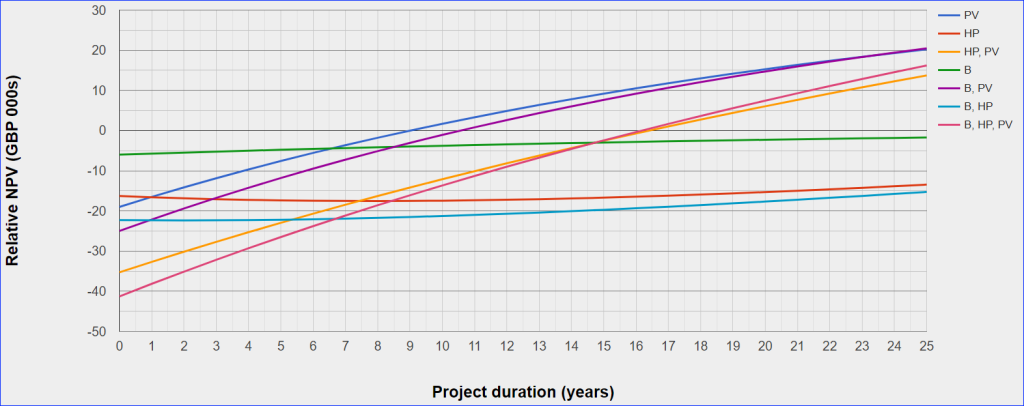Replacing boilers with heat pumps alone makes no financial sense with today’s energy prices, even after the £7,500 BUS grant.
Electricity’s (currently 25.7p / kWh) 4x price premium over oil and gas (6.3p / kWh) exceeds their efficiencies1 relative to the boilers they replace, and makes them more expensive to operate. Worse, they may never repay their capital costs.
There’s a lot of hype about how batteries allow heat pump owners to benefit from off peak prices. The maths says differently: get a battery solely for a heat pump and you are simply digging a bigger hole.The battery will never pay, whatever the duration.

Make things sunnier
Adding solar PV to a heat pump is like sprinkling instant sunshine, and can transform the economics of heat pumps.

In winter, solar generation is around 10-20 percent of summer levels. This is still a significant contribution because each “free” kWh of solar generated is 1kWh less imported from the grid. And come spring or autumn, there may be enough solar generated to power the heat pump entirely.
We are fortunate to have been able to add a relatively large number of panels (40) compared to the 10kW capacity of our heat pump which, even in the depth of winter, translates on average to about 30kWh of “free” thermal energy daily.
We’d still have been better off with PV on its own, keeping the boiler. But now heat pumps, and a CO2 free world, does make more sense than a boiler on its own – and so we got one.
If you are considering a heat pump2, maximize solar capacity, and consider battery storage if you’re in for the (very) long run.
- Relative efficiency is the heat pump SCOP divided by the efficiency of the oil boiler. In our case this was 4.0 (3.62 / 0.9). ↩︎
- Some housing types may never justify heat pumps on financial grounds. Passive houses, for instance, have such low heating requirements that cheap electric storage heaters on low green off-peak tariffs can be more attractive.
↩︎
Leave a Reply